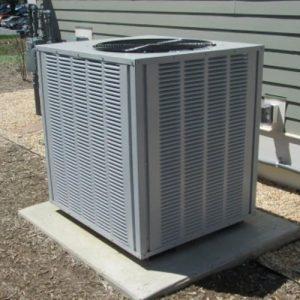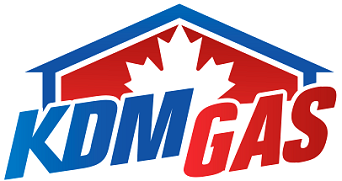 From very simple issues like a thermostat set incorrectly or a dirty filter… to a more complex situation that requires replacing components…there are a wide variety of reasons why you may find your air conditioner running, but not lowering the temperature in the house. We’ll outline some items you should check before calling a professional here.
From very simple issues like a thermostat set incorrectly or a dirty filter… to a more complex situation that requires replacing components…there are a wide variety of reasons why you may find your air conditioner running, but not lowering the temperature in the house. We’ll outline some items you should check before calling a professional here.
THERMOSTAT IS SET INCORRECTLY
When you notice your home getting a little hotter than normal, first check the thermostat settings. Be sure it is set to cool. If the thermostat is set to cool, check the temperature setting to be sure someone hasn’t changed it. If it is off, set to heat, or set for a constant fan (sometimes simply labeled “on”), switch it back to cooling operation. After the system kicks on, wait a few minutes, then check for cold air blowing from the registers. If it’s cold, problem solved! If not, move on to the next troubleshooting tip – checking the air filter.
DIRTY AIR FILTER
Your AC system may include an air filter located in or around the indoor air handler unit. The filter catches dirt, dust, and other airborne particles as they enter the air handler unit. It keeps the components inside the system cleaner and operating more efficiently and can help keep the air in your home cleaner as well. A dirty air filter can block airflow and reduce cooling to your home. In more extreme cases it can cause the system to shut down completely. If your thermostat checks out and you still don’t have cool air, locate your system’s air filter, turn the system off, remove the filter, and inspect. If, after you are satisfied that you have a clean air filter and your central air conditioner does not cool your home, you’ll have to dig a little deeper to locate the problem.
CONDENSER UNIT IS BLOCKED
As previously described, your central air conditioning system likely includes an outdoor condenser unit. The exterior of the condenser unit features a large outdoor coil, which wraps most of the way around the outside of the unit. The coil includes a series of thin metal “fins” which are spaced very tightly together. If your air conditioner is running, but not lowering temperatures inside, one issue could be a blocked or clogged condenser coil. When operating correctly, the condenser fan draws air into the outdoor unit through the condenser coil to pull heat energy out of your home. Dirt, grass, and other airborne debris can accumulate between the fins, clogging the coil. A dirty coil can lead to reduced energy efficiency, lack of cool air from the registers, or in extreme cases, complete system shutdown or damage to the compressor from overuse. You can attempt to clean the coil by clearing away debris, carefully vacuuming the coil with a brush attachment, or rinsing gently with a hose. If your system still isn’t cooling, it’s probably time to call a pro.
DAMAGED HEAT PUMP
In some cases, your outdoor unit might be a heat pump. A heat pump looks just like an AC unit, with some different components inside that allow it to both cool and heat your home. In cooling operation, it operates just like an air conditioner system’s condenser unit and is subject to the same issues – dirty, clogged coil, frozen coil, refrigerant leaks, compressor malfunctions, etc. If your heat pump system isn’t cooling, check thermostat settings, the air filter, and the condenser unit for previously described issues. If everything checks out and you’re still sweating inside, call your local HVAC dealer.
EVAPORATOR COIL IS FROZEN
The indoor component of your central air conditioning system will include an evaporator coil. If your indoor unit is a furnace, the evaporator coil sits in its own cabinet, outside the furnace. If the indoor unit is a fan coil (typically as part of a heat pump system), the evaporator coil sits inside the fan coil cabinet. Warm indoor air passes through the evaporator coil where heat energy and humidity are removed from the air. Cooler, more comfortable air is then circulated back to your home. Signs of a frozen evaporator coil include:
Frost forming on the copper refrigerant tubing coming from the coil cabinet
Inadequate cooling
Higher utility bills
Excessive condensate drainage near your indoor unit
In extreme cases, frost forms on exterior refrigerant tubing or the outdoor unit
Because accessing the evaporator coil is difficult, resolving issues associated with a frozen evaporator coil is best handled by an HVAC professional.
REFRIGERANT LEAK
Refrigerant is a chemical that is critical to the cooling process. It flows through the system’s indoor and outdoor coil, changing from liquid to gaseous form, drawing heat energy and humidity from indoor air, and releasing it outside. Depending upon its severity, a refrigerant leak can contribute to your AC system not blowing cold air, your system may run for longer periods of time without adequately cooling your home, or it can cause a damaged or failed compressor and complete system shutdown. Checking and resolving issues involving refrigerant levels in your system is another job for a professional.
UNDERSIZED AIR CONDITIONER
Air conditioners are “sized” according to the amount of cooling they can provide as measured in BTUh (British Thermal Units per hour). Under moderate conditions, you may not notice any issues with an undersized air conditioner. However, as temperatures rise outside, your AC may run for long periods of time and struggle to keep you cool. You might be able to determine the size of your AC unit from the rating info on the cabinet panel, but it will be difficult to determine whether it is the “right size” for your home. There are a number of factors involved in sizing a system for your home, including square footage, quality of construction and insulation, local climate, and more. If your system is undersized, it may be possible to provide cooling in problem areas by adding a ductless unit to help out in “hot spots”. Or, it may be better to replace the system with one that is correctly sized. The best way to address sizing issues is to contact a qualified HVAC professional who can accurately assess your home and its optimum cooling capacity.
